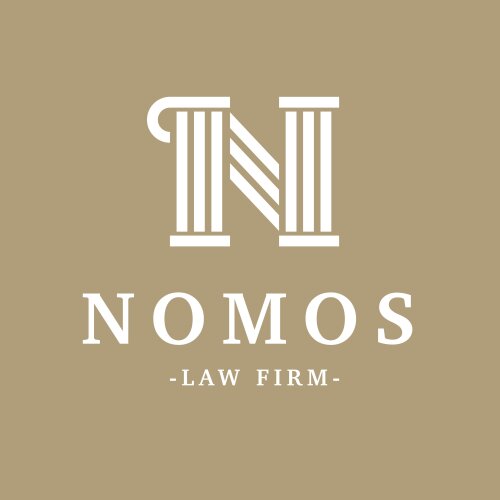Best Corporate & Commercial Lawyers in Rome
Share your needs with us, get contacted by law firms.
Free. Takes 2 min.
List of the best lawyers in Rome, Italy
Italy Corporate & Commercial Legal Questions answered by Lawyers
Browse our 1 legal question about Corporate & Commercial in Italy and read the lawyer answers, or ask your own questions for free.
- INFO APPOINTMENT FOR MARCH 2026 FROM 20th TO 24th
- Hello, My name is [name removed]. I am planning to open a pizza/ bakery business in Phuket (Rawai/Nai Harn). I need help with: company registration (Thai Limited) business license and permits work permit and non-B visa accounting and tax services Could you please send me a quote, timeline and services... Read more →
-
Lawyer answer by Ascendance International Consulting (A-I-C)
Thank you for your enquiry and for outlining your plans to open a pizza and bakery business in Phuket. We can assist with Thai limited company registration, business licensing and permits, work permit and non-immigrant B visa applications, as well...
Read full answer
Italy Corporate & Commercial Legal Articles
Browse our 2 legal articles about Corporate & Commercial in Italy written by expert lawyers.
- How to Register an SRL in Italy: A Guide for Foreign Investors
- Italy offers a dynamic market for international investors, serving as a gateway to Europe and the Mediterranean. However, its bureaucratic reputation is well-earned. For foreign entrepreneurs, navigating the setup of an Italian company requires patience, precision, and a clear understanding of the legal landscape.The most common corporate structure for small... Read more →
- Setting up an S.r.l. in Italy: A 2026 practical guide
- Foreign investors usually choose between a traditional S.r.l. (more flexible, more respected by banks) and a simplified S.r.l. (S.r.l.s) (cheaper to set up, but more rigid and sometimes less bank-friendly). Every Italian company must have a PEC certified email and at least one digital signature; without them you cannot file... Read more →
About Corporate & Commercial Law in Rome, Italy
Corporate & Commercial law in Rome, Italy, encompasses the rules and regulations that govern the formation, operation, and dissolution of companies and commercial transactions. This area of law includes everything from company incorporation, mergers and acquisitions, contracts, regulatory compliance, to dispute resolution. Due to Italy's central role in the European and global economy, and the unique influences of Italian civil law, operating a business in Rome requires careful navigation of both national and local regulations. Rome, being the capital, also hosts many governmental and regulatory bodies affecting business activity. Whether you are starting a business, entering into commercial agreements, or managing corporate operations, understanding Rome's legal environment is essential for success and risk mitigation.
Why You May Need a Lawyer
There are several common situations in which seeking legal advice for Corporate & Commercial matters in Rome can be crucial:
- Starting a new business or choosing the appropriate legal structure for your company.
- Drafting, negotiating, or reviewing commercial contracts, such as lease agreements, supplier contracts, or service agreements.
- Mergers, acquisitions, or joint ventures that require due diligence and complex negotiations.
- Ensuring compliance with Italian laws regarding employment, taxation, corporate governance, and regulatory filings.
- Protecting intellectual property, trade secrets, or business assets.
- Resolving disputes among shareholders, partners, or with third parties.
- Handling insolvency, restructuring, or liquidation processes.
In all these cases, a lawyer's expertise can help you avoid costly mistakes, protect your interests, and ensure that your business operates within the parameters set by Italian and EU law.
Local Laws Overview
Corporate and commercial law in Rome is primarily governed by the Italian Civil Code and various legislative decrees. Some key aspects include:
- Types of Companies: Common business structures include Società a Responsabilità Limitata (SRL - limited liability company), Società per Azioni (SPA - joint stock company), and partnerships. Each has unique requirements for registration, management, and liability.
- Registration Process: Companies must be registered with the local chamber of commerce and meet specific capitalization and documentation requirements.
- Corporate Governance: The law sets out rules for appointing directors, holding meetings, and managing company records.
- Contracts: Italian contract law emphasizes written agreements and clarity of terms, with specific rules on validity and termination.
- Employment Law: Businesses must comply with strict employment and labor laws, including hiring practices, employee rights, and termination procedures.
- Tax and Regulatory Compliance: Companies must adhere to national and local tax obligations and file regular reports with authorities.
- Dispute Resolution: Most commercial disputes are resolved through civil courts, arbitration, or mediation, depending on the nature of the issue and contract provisions.
Frequently Asked Questions
What are the main types of companies in Italy?
The most common company forms are the SRL (limited liability company) and SPA (joint stock company). Partnerships and sole proprietorships are also possible, but larger businesses often opt for SRL or SPA for liability and operational advantages.
How do I start a company in Rome?
To start a company, you need to select a business type, draft Articles of Association, register with the Rome Chamber of Commerce, obtain a tax code, and comply with capitalization requirements. Legal assistance is highly recommended to navigate these steps.
Are there any specific requirements for foreign investors?
Foreign investors can generally establish companies in Italy under the same conditions as Italian nationals. However, there may be additional requirements for documentation, translation, and local representation.
How are business contracts regulated?
Business contracts in Italy must follow the principles of the Italian Civil Code. While oral contracts can be valid, written agreements are strongly recommended to avoid disputes and ensure enforceability.
What are director duties and liabilities?
Directors must act in the best interest of the company, comply with legal obligations, and can be personally liable for negligence or violation of fiduciary duties.
What regulatory filings are required for companies?
Companies must file annual financial statements, tax returns, and update the companies register with any changes in structure, management, or capital.
How does Italian employment law affect businesses?
Employment law regulates hiring, contracts, employee rights, workplace safety, dispute resolution, and termination processes. Non-compliance can result in significant penalties.
How are commercial disputes resolved?
Disputes are typically resolved through civil courts in Rome, but arbitration and mediation are also common. The method often depends on what was agreed in the contract.
What taxes do companies in Rome need to pay?
Companies are subject to corporate income tax (IRES), regional tax on productive activities (IRAP), and value added tax (VAT), among other local taxes. Proper tax planning and compliance are essential.
Can I change my company’s structure later?
Yes, companies can change their legal form, name, capital, or articles of association, but these changes require formal resolutions, documentation, and updated filings with the authorities.
Additional Resources
If you seek deeper insights or official guidelines about Corporate & Commercial law in Rome, consider exploring the following resources:
- Rome Chamber of Commerce - provides guidance on company registration, business filings, and local requirements.
- Italian Ministry of Economic Development - offers resources for entrepreneurs and foreign investors.
- Consiglio Nazionale del Notariato - information on legal documents, company formations, and notarial requirements.
- Italian Revenue Agency (Agenzia delle Entrate) - for tax obligations, filings, and compliance.
- Local Bar Association (Ordine degli Avvocati di Roma) - to find authorized legal professionals specializing in Corporate & Commercial law.
Next Steps
If you believe you need legal assistance with a Corporate or Commercial matter in Rome, it is advisable to:
- Identify the specific nature of your legal issue - is it company formation, contract negotiation, compliance, dispute, or something else?
- Gather all relevant documentation, such as business plans, contracts, corporate bylaws, or correspondence.
- Research and contact a qualified law firm or lawyer in Rome with experience in Corporate & Commercial matters. The Local Bar Association can provide reliable leads.
- Prepare a clear summary of your needs and goals to discuss with your lawyer during the initial consultation.
- Stay informed about your legal obligations and maintain ongoing communication with your legal advisor to ensure you remain compliant and protected as your business grows or your situation changes.
Taking these steps will help you avoid common pitfalls, protect your interests, and make informed decisions in the competitive business landscape of Rome, Italy.
Lawzana helps you find the best lawyers and law firms in Rome through a curated and pre-screened list of qualified legal professionals. Our platform offers rankings and detailed profiles of attorneys and law firms, allowing you to compare based on practice areas, including Corporate & Commercial, experience, and client feedback.
Each profile includes a description of the firm's areas of practice, client reviews, team members and partners, year of establishment, spoken languages, office locations, contact information, social media presence, and any published articles or resources. Most firms on our platform speak English and are experienced in both local and international legal matters.
Get a quote from top-rated law firms in Rome, Italy — quickly, securely, and without unnecessary hassle.
Disclaimer:
The information provided on this page is for general informational purposes only and does not constitute legal advice. While we strive to ensure the accuracy and relevance of the content, legal information may change over time, and interpretations of the law can vary. You should always consult with a qualified legal professional for advice specific to your situation.
We disclaim all liability for actions taken or not taken based on the content of this page. If you believe any information is incorrect or outdated, please contact us, and we will review and update it where appropriate.
Browse corporate & commercial law firms by service in Rome, Italy
Rome, Italy Attorneys in related practice areas.

















